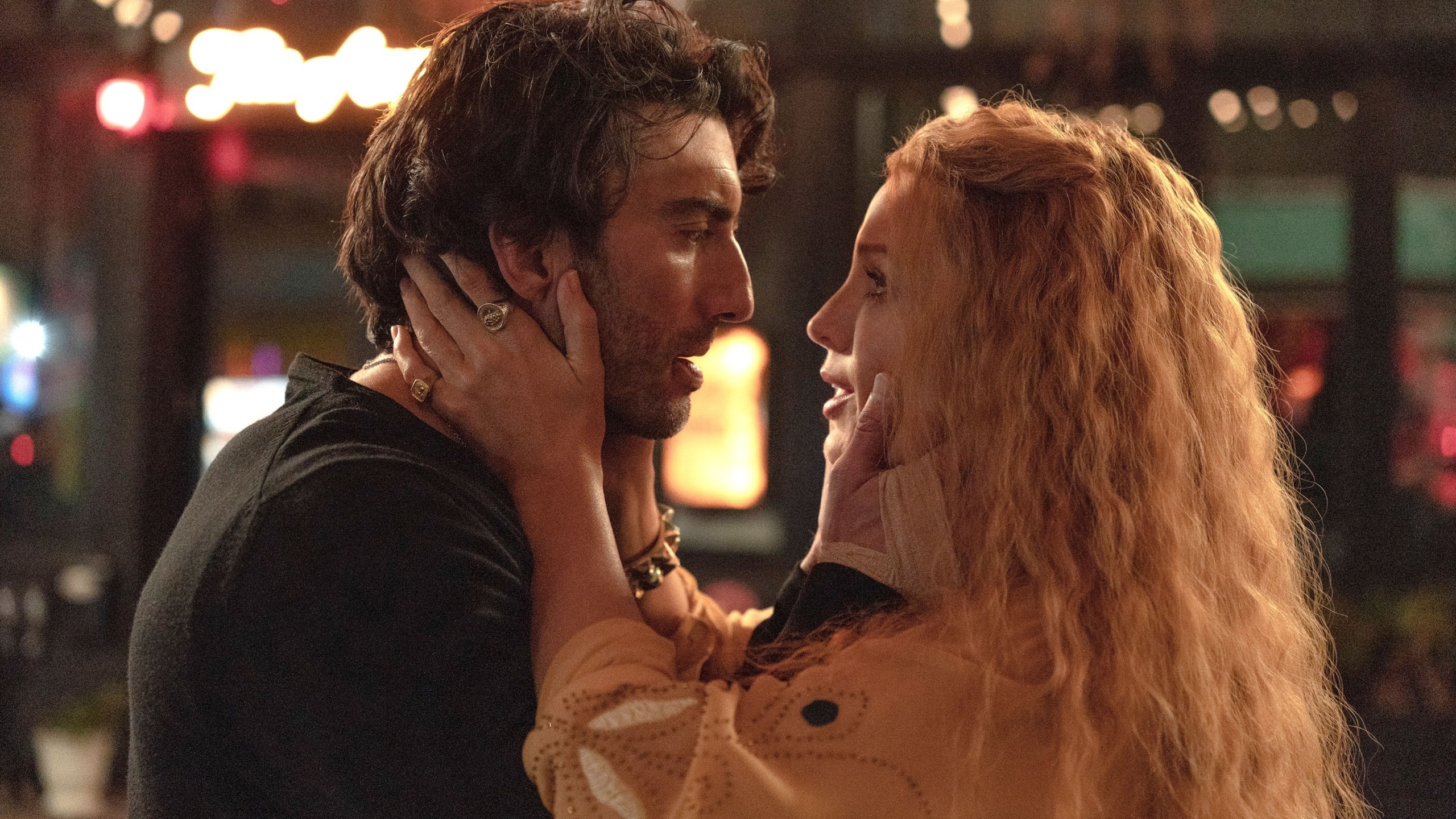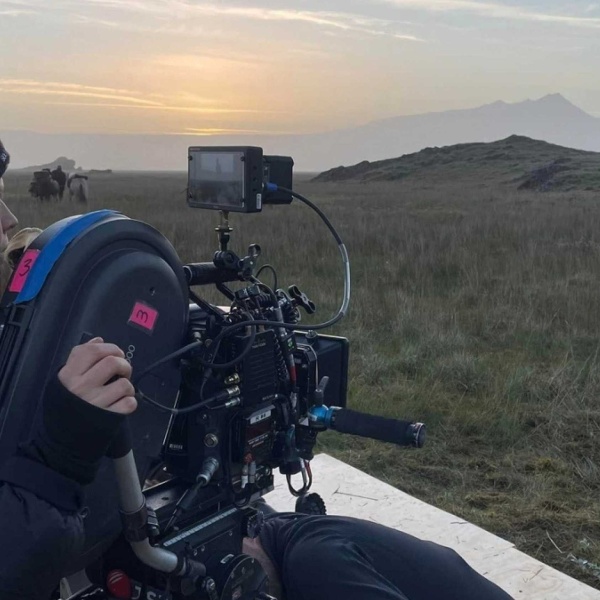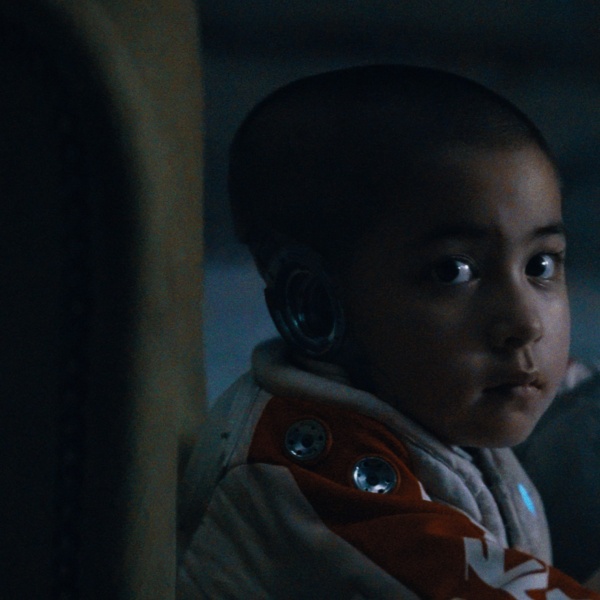The recently released film adaption of Colleen Hoover’s bestselling novel “It End with Us” was a lot of things and has certainly gotten a lot of people talking. It’s unfortunate, however, that the most important subjects at its center — that of domestic violence and emotional abuse — have not been top-of-mind for most conversations regarding the film, but rather alleged personal riffs between star Blake Lively and director/co-star Justin Baldoni. When domestic violence and abuse have been discussed in reference to the film, it has typically been with criticism over how the film and its rollout have avoided more thoughtfully grappling with these themes, rarely reaching for a narrative that goes any deeper than a casual beach read.
In speaking on adapting Hoover’s novel for the screen in an interview with Entertainment Weekly, Baldoni acknowledged his interest in focusing on how Lively’s character, Lily Bloom, overcomes her circumstances, rather than recognizing the trauma she endures as a result of the abuse his character inflicts. “This is a movie about love, and about hope, and about empowerment, and the ability that each of us have to make a different choice,” Baldoni said. “In thinking about that, and what the theme of this movie is about, and what this book is about, I had to find a way to make sure that we were never judging Lily, and we were protecting her character arc, at all costs.”
While Baldoni’s perspective does help the journey of Lively’s character to land more smoothly on the big screen, films that deal with domestic violence and abuse shouldn’t necessarily be easy for audiences to watch. Films that have explored the subject in more meaningful ways tend to do so by asking questions, rather than providing answers; not tying things up in a neat bow, but instead making viewers reflect on how these situations come to be and the trauma they can unleash on the human psyche.
While a movie like Lee Daniels’ “Precious” may not be an easy watch, it’s a prime example of how unflinching one should be in portraying both abuse and how cycles can be broken. Though Margot Robbie may come across as funny in “I, Tonya,” the film doesn’t shy away from portraying how deep the history of her abuse goes and how it effects her ability to not only compete, but make decisions for herself.
Honoring the work other filmmakers have done to create important conversations around the subject, below IndieWire lists a few films we believe handle abuse and trauma in ways more profound than “It Ends with Us.” This is not written to shame any one portrayal of abuse, but instead to show that there is value in acknowledging this form of violence exists in many forms and how cinema has participated in bringing multiple examples to light.
For those seeking resources, you can reach out to the National Domestic Violence Hotline 24/7 at 800-799-7233 or text BEGIN to 88788. You can also visit their website by clicking here.
“Fried Green Tomatoes” (dir. Jon Avnet, 1991)

Based on Fannie Flagg’s 1987 novel, “Fried Green Tomatoes at the Whistle Stop Cafe,” Jon Avnet’s adaptation starring Kathy Bates, Jessica Tandy, Mary-Louise Parker, Mary Stuart Masterson, and Cicely Tyson is a cross-generational tale of friendship, self-determination, and the ties that bond, both beautiful and tragic. The story starts from the perspective of a depressed housewife (Bates) who forms an unlikely friendship with an elderly woman (Tandy) she meets at a nursing home.
“Fried Green Tomatoes” opens as an older lady shares the story of two female friends (Parker and Masterson) who started a cafe in a small Southern town called Whistle Stop many years prior, long before the town was ultimately abandoned. During the course of their relationship, the two face multiple crises, from family deaths to abuse at the hands of one of their husbands, but through it all, they stick together, always there for the other. While it may seem quaint when looked at for face value, the depth of this film is in exploring the joy of life to be had outside of the pain being imposed and that good, helping people are not hard to come by so long as you make yourself open to them.
“This Boy’s Life” (dir. Michael Caton-Jones, 1993)

Marking the beginning of Leonardo DiCaprio’s film career, “This Boy’s Life” is a harrowing coming-of-age tale based on novelist Tobias Wolfe’s memoir published in 1989. Set in the 1950s, the film follows a young Toby (DiCaprio) as he moves with his flighty mother (Ellen Barkin) to Seattle, where she engages in a romance with Dwight (Robert De Niro), a man who seems to fit her desires for an idealized relationship.
However, as Dwight begins to shape Toby into the son he wishes him to be, his true colors start to show. Toby and his mother go on to endure years of dysfunction and abuse at the hands of Dwight before finally finding strength in one another and accepting that leaving is the only way out, no matter how much either wished to finally be settled down.
“Dolores Claiborne” (dir. Taylor Hackford, 1995)

Unlocking trauma can often feel like a horror film, a fact screenwriter Tony Gilroy and director Taylor Hackford seem to understand well in their adaptation of Stephen King’s “Dolores Claiborne.” Following the death of a woman who’s long been in her care, domestic worker Dolores Claiborne is quickly accused of murder having also, years prior, been rumored to be responsible for the disappearance of her husband (David Strathairn).
Dolores’ estranged daughter (Jennifer Jason Leigh), a depressed, substance-abusing journalist, agrees to return home to support her mother, but in the process, is exposed to the truth about her father’s past abuses long buried in her memory. While the film does play as a psychological thriller, it utilizes those tropes to acknowledge the realities around repression and the truth about how our minds push back against trauma, further exacerbating it.
“Waitress,” (dir. Adrienne Shelly, 2007)

Featured on IndieWire’s Best American Independent Films of the 21st Century list, Adrienne Shelly’s 2007 Sundance hit “Waitress” is a bittersweet delight in more ways than one. Centering on a small-town waitress (Keri Russell) with an almost mystical gift for making pies, the film reveals a darker layer within the fluffy filling: A history of abuse between her and her husband that is now further complicated by an unwanted pregnancy.
Though the film’s premiere and continued legacy is at times unfortunately tied to Shelly’s real-life murder at the hands of a violent man, “Waitress” remains an empowering story of female camaraderie and finding community, in spite of feeling all alone.
“Precious” (dir. Lee Daniels, 2009)

“Precious,” based on the novel “Push” by Sapphire, is an unvarnished look at the poverty and abuse generations of BIPOC women have faced, sometimes within their own family. While the Lee Daniels film was lauded at the time of its release, particularly for its performances from newcomer Gabourey Sidibe, Mariah Carey, and Mo’Nique, who earned an Oscar for Best Supporting Actress, it has since come to be unjustly viewed as “trauma porn.”
To minimize “Precious” in this way is to misunderstand its mission of providing voice to a long-voiceless community. Sexual abuse within the family and the resulting trauma it triggers is a tough subject to face, but until it is, the cycle can’t be broken and for many, “Precious’ helped to do that.” In an interview with students from Emerson College at the time of the film’s release, Daniels himself said, “I think ‘Precious’ is about learning to love yourself, ultimately, and I think it teaches us about prejudices in ways that we haven’t been taught before.”
“Private Violence” (dir. Cynthia Hill, 2014)

A small peek into what women in America must face in seeing their abusers face justice, “Private Violence” documents the relationship between a domestic violence victim turned advocate and the women she helps get out of dangerous situations. This work also involves training police officers how to handle domestic violence calls and consulting with prosecutors on behalf of women testifying against their abusers.
Though “Private Violence” tends to circle around one specific woman and the harrowing ordeal she’s faced at the hands of her husband, at a macro level, the documentary works to shift our understanding of how abuse is handled by the courts and how without the right support, no woman may be able to escape a violent household.
“I, Tonya” (dir. Craig Gillespie, 2017)

There’s a great amount of comic energy that surrounds this bio-drama regarding Tonya Harding’s rise and fall in the world of competitive figure skating, but at its core, “I, Tonya” aims to unravel the reality of being in abusive relationships, whether it be a parent or a romantic partner, and how often they can remove your ability to have self-determination.
In Margot Robbie’s Oscar-nominated performance, Harding is played as both a victim and a tireless competitor whose situation brought out a ruthless edge she may not have otherwise leaned into so hard. Though Sebastian Stan plays her abusive husband as a reckless, insecure fool more than a cruel villain, he manages to get to the heart of most abuse cases in how, often, they revolve around maintaining stereotypical power dynamics between genders. Moreover, the physical and verbal abuse exhibited by Harding’s mother (Allison Janney in an Oscar-winning performance) also helps to outline how, in many cases, victims of domestic violence, have been set up to accept the abuse put upon them from childhood.
“The Tale” (dir. Jennifer Fox, 2018)

With “The Tale,” filmmaker Jennifer Fox trains the camera on her own complicated history with grooming and sexual abuse, unfurling repressed memories that reveal how hard the mind works to bury trauma. Starring Laura Dern as Fox, the film is set in motion when her mother (Ellen Burstyn) discovers a letter from when she was 13 that implies a sexual relationship with a much older man. At first, Fox dismisses her mother’s concern, but as she starts to research this time in her life, the truth of the abuse inflicted upon her by a former riding coach and his wife becomes clear.
In exploring her past traumas, Fox not only aims to investigate her own memories, but also the actions of her abusers and the strategy they harnessed to lure young girls in. In the process, she realizes how the past situation matured her beyond her years, perhaps even stealing a youth she’s long since parted with. The film also helped Fox face her molestor after years keeping him buried in her memories. In 2023, following his death in 2021, she named Olympic medalist Ted Nash as her groomer and in an interview with The New York Times said, “The adult part of me wants to move on, but that child in me, she wants to face him and get it over with and name him. There was a part of me saying, I will not let you rest until you name him.”
“Athlete A” (dir. Bonni Cohen and Jon Shenk, 2020)

The sexual abuse of USA Gymnastics Team doctor Larry Nassar was not the act of one man, but of many participants who enforced a culture of silence in order to maintain the image of elite status. This is the message documentarians Bonni Cohen and Jon Shenk hone in on as they examine the legacy of the sport and the young girls and families who have fallen victim to its illustrious trappings.
What is most illuminating in regards to the subjects and narrative examined, is how inspired the young women who’d previously felt like they needed to keep their abuse a secret were to come forward once the truth behind Nassar’s crimes and USAG’s cover-up was finally out in the open. In showing how others have gone through the same thing and that there are people out there who not only want justice, but demand it, “Athlete A” shows that there is strength in numbers on both sides of any abuse.
“The Invisible Man” (dir. Leigh Whannell, 2020)

Using the language of horror to explore how trapped women can feel within an abusive relationship, “The Invisible Man” exceeds beyond its genre boundaries by drawing a line between domestic violence, power, and the people who support that power. Reinventing the 1897 H.G. Wells novel and the 1933 James Whale adaptation, Australian filmmaker Leigh Whannell directs Elizabeth Moss as a woman being stalked by a rich, violent ex-boyfriend who’s utilizing a suit that makes him invisible.
In the process of ruining her life, the ex is assisted by his brother (Michael Dorman), who tries to gaslight Moss’ character into thinking she’s losing her mind, a tactic many abusers use to trap their victims in violent, unhealthy circumstances. While film concludes by leaning into its horror set-up and meeting violence with violence, it otherwise serves as a useful allegory for the terror abuse breeds.





